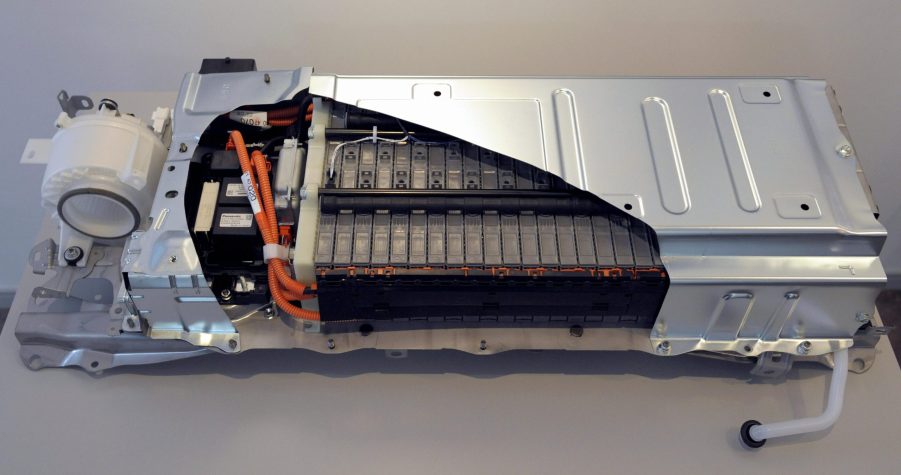
Nickel-Metal Hydride or Lithium Ion: Which Type of Hybrid Battery Is Better?
Hybrid and electric vehicles have increased in popularity over the years and inevitable that they will be more prevalent in the future, so it’s important to understand them as much as possible. If you have done any research on hybrid or electric vehicles like a Toyota Prius or a Tesla, then you may be familiar with the terms “nickel-metal hydride” and “lithium-ion.” These terms are referring to what the hybrid and electric vehicle’s batteries are made out of. But which type of battery is better?
Nickel-metal (Ni-MH) hydride batteries

You’ll typically find nickel-metal hydride batteries in some of the older hybrid and electric cars like the first couple of generations of the Toyota Prius and Honda Insight. Although this type of battery is old, it’s not exactly archaic, as some new cars in the current market still use them. In fact, you can still find Ni-MH batteries in the all-wheel-drive versions of the current Toyota Prius.
While that might be a little surprising — since lithium-ion batteries are far more prevalent now – there’s actually a good reason for it. According to Torque News, Ni-MH batteries can withstand harsher weather conditions, from freezing winters to blazing-hot summers. This is why you’ll find them in the AWD Prius, which is a hybrid car that is great for snow states and desert states.

Another advantage for Ni-MH is that they are easier to recycle. Auto Evolution says that the high amounts of nickel in these batteries make recycling more profitable. On the flip side, nickel-metal hydride batteries have a low energy density; about 40% lower than lithium-ion batteries. In order to circumvent the lack of power, many Ni-MH batteries are large in size, which helps with power, but not with weight.
Charging is also an issue. Ni-MH batteries charge slower than lithium-ion batteries and they also discharge slower as well. They also tend to run hotter, due to the charging cycles, so a separate cooling system is needed as well.
Lithium-ion (Li-ion) batteries

You’ll typically find lithium-ion batteries in many of the new hybrid and electric cars today. If that term sounds familiar, you’re probably aware that many handheld electronics use lithium-ion batteries as well, but they use a different kind. According to Auto Evolution, the type of Li-ion batteries that you’ll find in cars are made of lithium nickel manganese cobalt oxide (NMC).
The main highlight of using lithium-ion batteries is that they have a better energy-to-weight ratio, which means that they can hold more energy and weigh less than their Ni-MH counterparts. Li-ion batteries also charge quicker and have no memory issues. This means that Li-ion batteries won’t lower their maximum charging capacity with each cycle.
The biggest downside to using a lithium-ion battery is cost. Li-ion batteries are around 40% more expensive to manufacture than Ni-MH batteries, which is why cars equipped with them tend to cost more. And although Li-ion batteries discharge slower than others, they also have a shorter shelf life (around 10 years) if they are not stored properly.
Which battery is better to use?
Considering lithium-ion batteries have fewer downsides, and store more energy at a lighter weight, they are better to use in hybrid cars in the long run. However, as we can see, there is still a place for the tried-and-true Ni-MH battery. But since hybrid and electric cars are becoming more popular, it might not be long before those are replaced with Li-ion types, if not something else.



